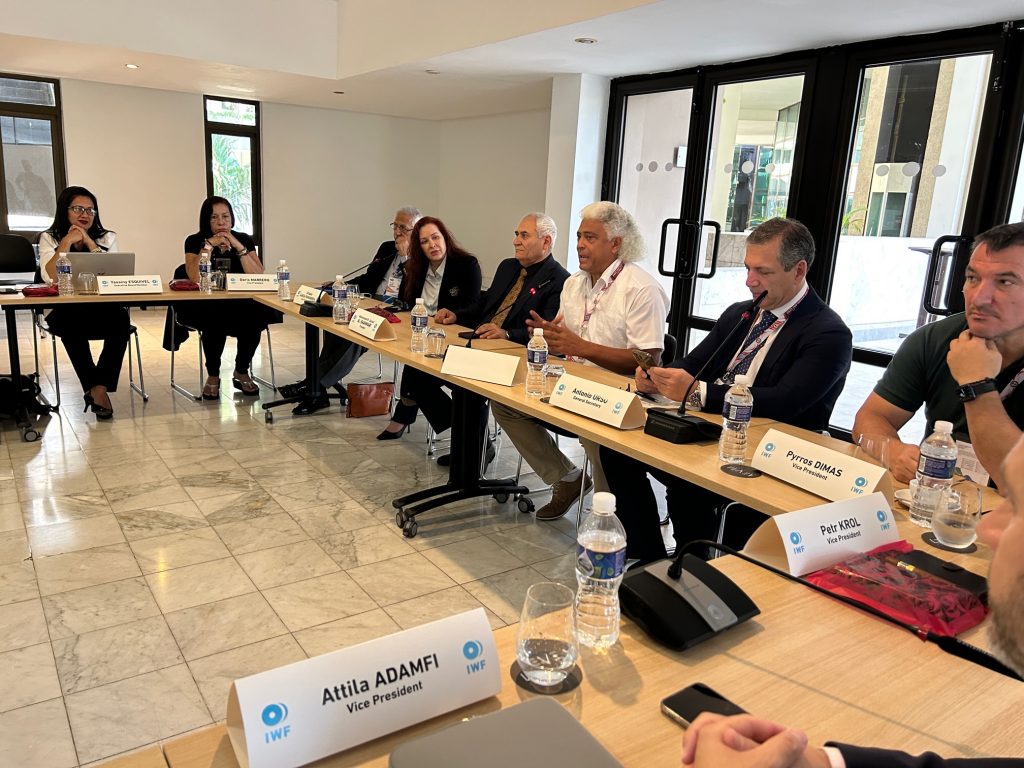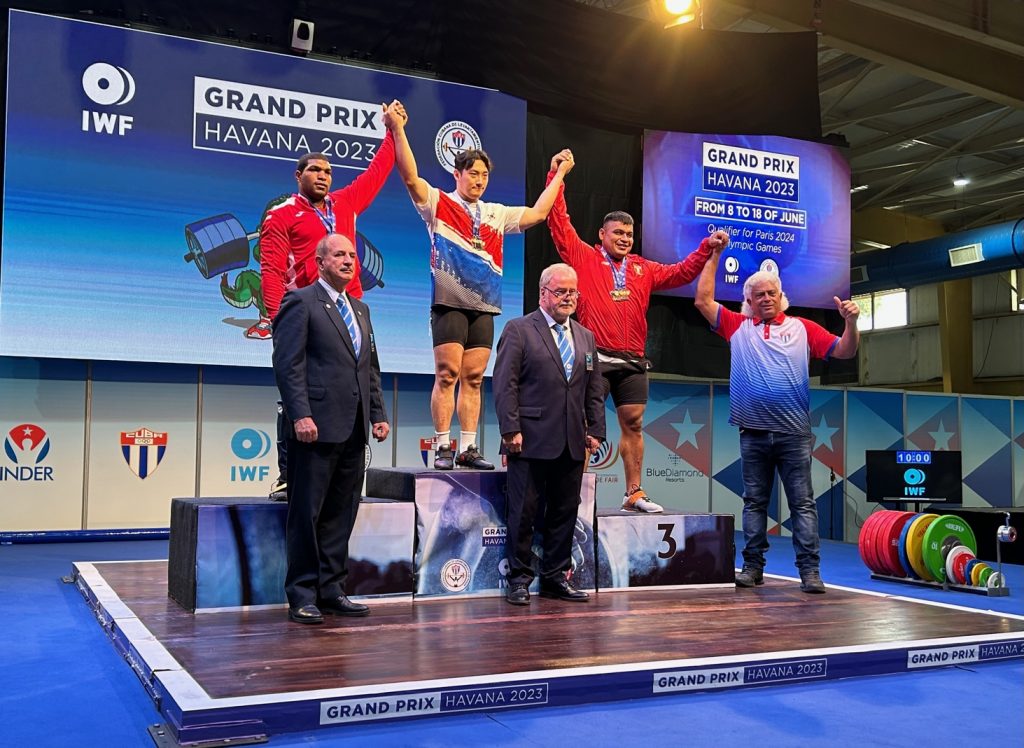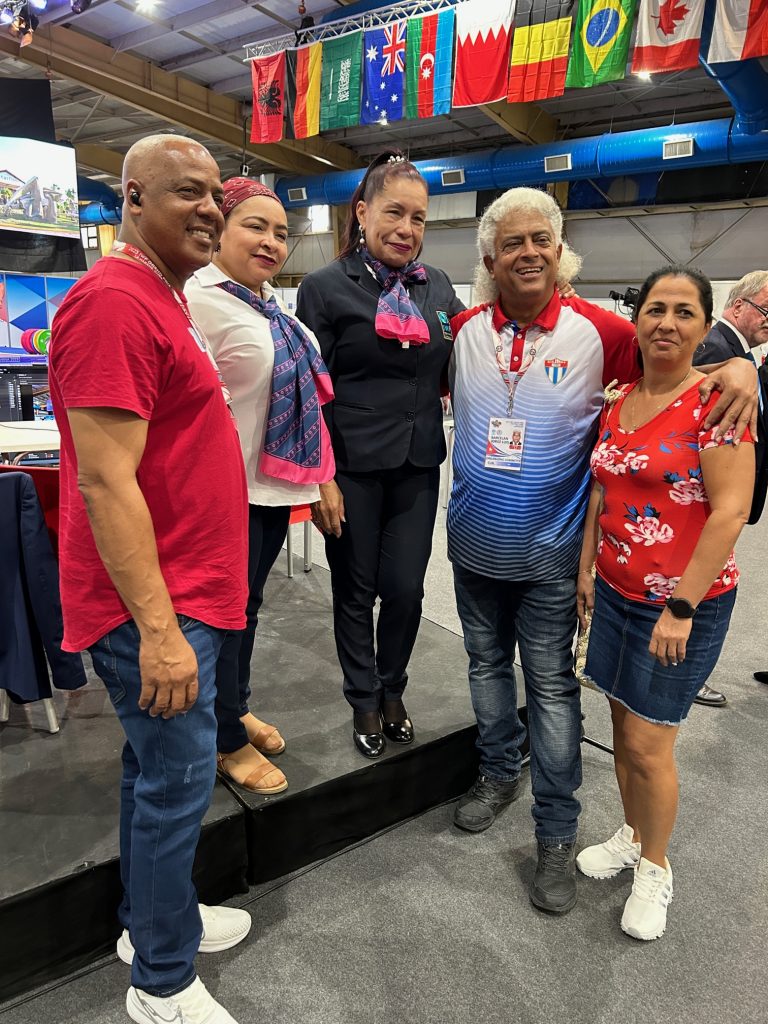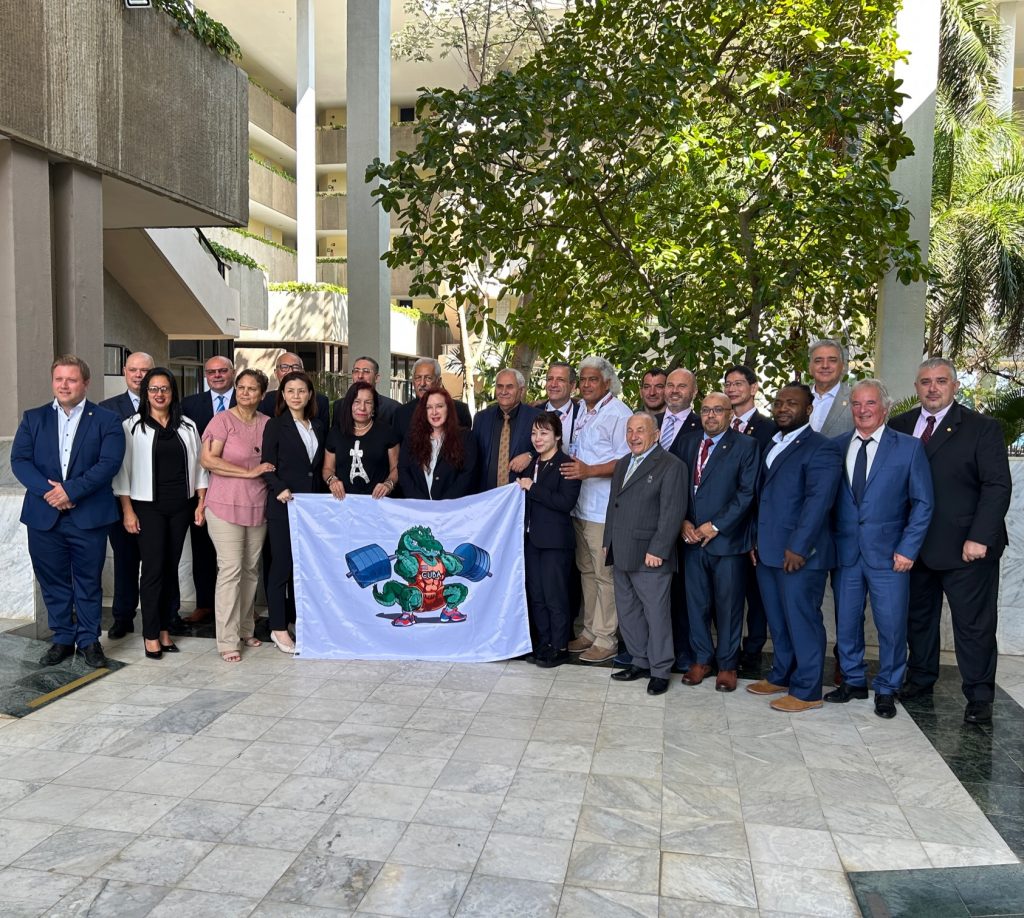Cuba and the IWF Grand Prix: Hard work, emotion, and development
Jorge Luis Barcelan likes to talk with passion about the causes he cherishes. His eyes get wet when he recalls all the hurdles and difficulties until the staging of the IWF Grand Prix, here in Havana (CUB). President of the Cuban Weightlifting Federation since 2014, Barcelan was a dedicated host to the nations and athletes that decided to come to the Caribbean island and compete in an event that is also qualifying for the 2024 Olympic Games in Paris (FRA). The Cuban leader is proud of this achievement and hopes that more opportunities will arise in the future.
“It all started two years ago. The IWF, recognising the tradition and history of our country in the sport, decided that we were worth staging a world event of this magnitude. It seemed a dream then, as the last, and only, world competition ever hosted in Cuba were the IWF World Championships, in the already distant year of 1973,” recalls Barcelan. “The International Federation decided that this could be a good occasion to revive and develop the sport on the island. Once we knew that the IWF and the Pan American Federation strongly supported the project, we knocked at the door of the Ministry of Sport and even the leadership of our country. And they were seduced by the idea!” he continues.

Jorge Luis Barcelan welcoming the IWF Executive Board in Cuba
However, this determination was somehow refrained by the general situation in the country, subject to an economic embargo for six decades now. With tears in his eyes, the Cuban Weightlifting Federation President explains: “We are living and imposing very drastic measures on our people, as we are subject to a very challenging environment. This creates obvious difficulties, not only in the daily lives of our citizens but in all the projects that may involve a huge investment. This was the case at this Grand Prix. Fortunately, all the concerned national authorities understood the importance of this event and immediately offered their help and financial support”.
Barcelan gives a very concrete example of the challenges that the organisation of the event underwent in the weeks before the Grand Prix. “Due to bad weather, the ship that was supposed to bring from China some of the material necessary to the competition couldn’t arrive in Cuba on time. Other countries, such as Mexico, Dominican Republic, Colombia, and Venezuela immediately sent their help and we could have all the necessary conditions to welcome in the best possible way all the participating delegations. However, this represented an additional financial effort on our part… But I would like to underline and thank the international solidarity received from these nations from the American continent,” he recalls.
 Jorge Luis Barcelan on a podium ceremony (far right)
Jorge Luis Barcelan on a podium ceremony (far right)
A few hours before this interview, the IWF President Mohammed Jalood had been received by the President of Cuba, Miguel Diaz-Canel, who thanked the IWF leader for his support in bringing such an important event to the island. “There is a clear will from the Cuban government to enhance the sport in Cuba: this includes the support to our athletes and respective federations, but also by attracting prestigious and international sports events to the country”.
Known for the hospitality of its people, the IWF Family felt very well received in Havana. “Our people are always grateful to those who strongly support our development, in this case in the sportive area. We will never forget the opportunity that was given to us, and we are already studying future opportunities to bring IWF events to our country”.
In fact, during the Grand Prix, Barcelan had the opportunity to take the IWF President and the Pan American Federation leader Jose Quiñones to Varadero, where an international centre is also available to stage events of this magnitude. “They were impressed with the facilities we have there. I am sure that with the positive dynamic created by this Grand Prix, continental or world events can be staged in Varadero. We are seriously considering bidding for the IWF World Junior Championships in the years to come,” he confesses.
 Barcelan (second from the right) is happy to have the weightlifting family in Havana
Barcelan (second from the right) is happy to have the weightlifting family in Havana
On a more national perspective, Barcelan considers that the competition that concludes this Sunday in Havana, allows Cuban athletes to “compete at home with many Olympic and world medallists in weightlifting”, thus providing them with a “precious international experience”. When asked about the expectation of the Cuban Federation concerning the Games’ participation next year in Paris, Barcelan is optimistic: “Our plan is to take from two to four athletes, if possible an equal number of men and women. Once there, our objective is to get results in the first six of the ranking. That would be a good outcome for us”. Before the last competition day in Havana, Cuban male lifters won three medals (based on total results) – one gold, one silver, and one bronze – while among women two podium positions were achieved – one second and one third place.
Given the situation, the Cuban weightlifting leader is obliged to concede that the men’s team is presently stronger than the women’s group. “Yes, this is true. And this is basically due to the gap between the start of the men’s programme in the country, in 1965, and the women’s one, from 2006. There was a misconception concerning weightlifting as a harmful sport for women. We did many studies – physiological and biomechanical – and we of course came to the conclusion that this sport is perfectly suited for women. Since then, I can proudly say that there is a gender balance between men and women in the sport – both in terms of athletes, but also officials, coaches, and administrators. For example, we have already 46 certified female coaches around the country. Things are evolving in a very positive way”.

The next immediate competitive rendezvous for the Cuba team are the Central American and Caribbean Games, taking place a few days after the conclusion of this Grand Prix, from June 23-28 in San Salvador (ESA). Seven male and five female lifters will represent the nation and Barcelan expects good results. “It’s basically the same team that was here in Havana. Those Games will be an opportunity to show our strength in the continent and are of course a priority for us. After that, the main IWF competition is of course the World Championships in Riyadh”.
The IWF Grand Prix in Havana was also marked by the participation of a delegation, under the designation of Individual Neutral Athletes. Following the decisions of the IWF on this matter, this possibility had been open to athletes and support personnel with Russian or Belarussian passport. Only the latter agreed with the IWF policy and were present in Cuba. “We strongly believe in unity through sport. These are nations with a strong tradition in weightlifting and we are happy that at least athletes from Belarus could attend the event. They had to fulfil some conditions, which we consider appropriate. Our beloved sport of weightlifting, besides being a healthy and clean sport, needs to be a sport for all, without exceptions,” Barcelan concludes.
By Pedro Adrega, IWF Communications










